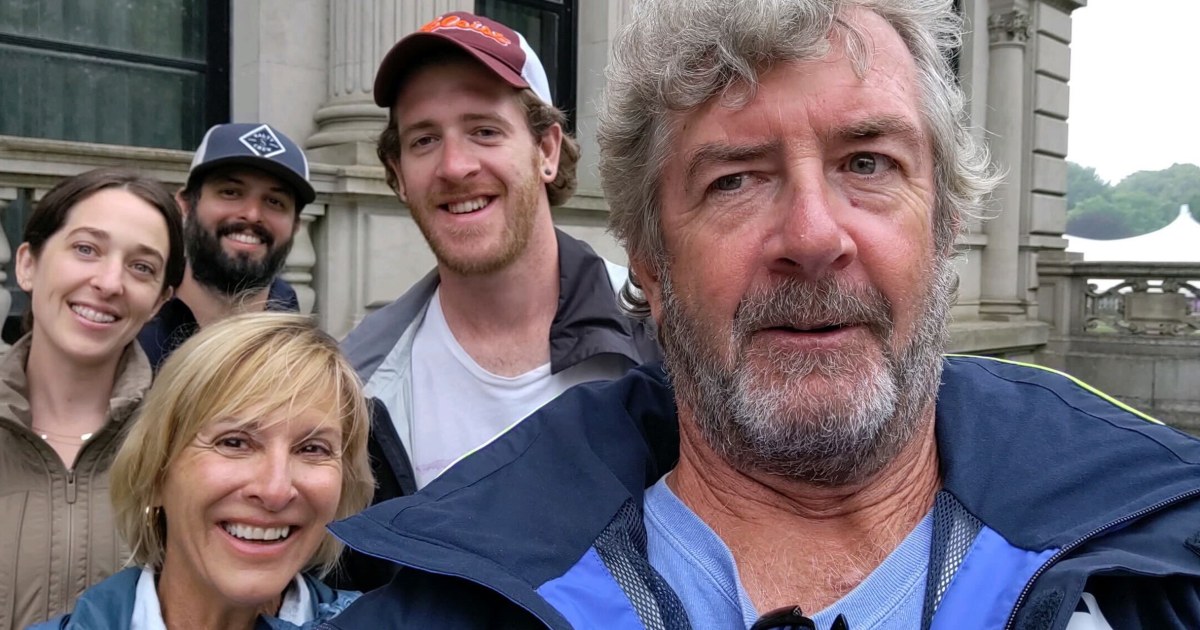Enlarge image
Author Bryan Washington: Jump into the League of New Literary Voices
Photo: Dailey Hubbard
The expression Bryan Washington uses with remarkable frequency is "emotional honesty."
He means the ability to honestly and respectfully communicate your feelings and needs, but also to consciously experience your own emotions.
Something that the couple Ben and Mike face in Washington's debut novel - and wrestle.
In "Things We Don't Believe In," Washington talks about the relationship between Ben, a black kindergarten teacher, and Mike, a cook with Japanese parents. Both of them have lived together for four years in Houston's historic, black Third Ward district and are at a point in their relationship where they no longer know if and how to stay together. Instead of communicating honestly with one another, they try to solve their problems through sex. Just as Mike's mother Mitsuko from Osaka is about to visit her, her son leaves to look after his terminally ill father, who is separated from his mother and whom he has not seen for years. Ben is left with a woman he has never met before.
The 27-year-old author Washington is considered one of the new shooting stars on the US literary scene. His short story collection "Lot" landed on Barack Obama's reading list two years ago and was awarded various prizes. With his debut novel, which was highly praised by literary critics, he finally made the leap into the league of new literary voices, which also includes the author and poet Ocean Vuong. The film rights to »Things We Don't Believe in« have already been sold to the production company A24, which was jointly responsible for the Oscar winner »Moonlight« and is working on a series adaptation with Washington.
Washington, black, gay, is a friendly man who loves to laugh while sitting close to the computer in his Houston apartment.
Two bracelets dangle from his wrist, framed art behind him.
Washington was born in Kentucky and his family moved to the Houston metropolitan area when he was three years old.
He doesn't like to admit it, but as a child he didn't read much.
After high school, he went to the library out of boredom, where he discovered Japanese literature, which shapes him to this day.
Emotional insincerity
He also owes the secret of his success to the emotional honesty with which he meets his characters. Mike and Ben are not defined solely by their sexuality, their origins, their HIV status, their mistakes and successes - but Washington does not deny any of that either. The strength of the novel lies in the complexity of his characters who simply
are
trying to live their lives. "Of course, for strategic market reasons, it would have been better to write a story in which the character is marked by the feeling of being out of place in a country that is also their country," says Washington. "But there would be an emotional insincerity in that, and it would be the more boring story."
Instead, as in his short stories before, he senses the question of what exactly
home
actually
means. Is it a place, a person, a feeling? “I'm interested in how the answer keeps changing. What and who a person is in a certain context and how they may change in a new context. "
In the relationship between Ben and Mike, who thought they had found their home with the other person, a distance creeps in as the story progresses, both geographically and emotionally.
At the same time, Mike's mother and Ben approach.
“Mitsuko and I develop something like an evening ritual.
She cooks.
I'll get plates and cutlery.
We eat together at the bar.
Later I'll wipe the counter while Mitsuko does the dishes, ”Washington writes.
Cooking, eating meals together - this is what care could look like, this is how communities can develop.
But who takes care of Mitsuko?
Towards the end of the novel, Mitsuko, Mike and Ben go out to eat. For the first time, she opens up and talks about her life - because she experiences what it means to be looked after by others.
The cuisine of Japan
Japanese cuisine plays a central role in the novel. Natto, korokke, chicken dashi, okayo, omuraisu - all dishes that appear in the novel. "In American literature, people never eat or have sex," says Washington, "and I wanted to write a story in which these things are primary storylines." He knows Japan from regular trips, visited once before the pandemic a year friends. At some point he recognized similarities between the city of Osaka and Houston. "I cannot describe it correctly, there is a warmth that I feel in both places."
Washington also tries to capture this warmth, this warmth in pictures. It's a visual component that makes sense overall because it's photos that Mike sends from Osaka to Ben in Houston. Playing with the book as an object - that is reminiscent of the novels by Teju Cole or Yōko Tawada.
The nonchalance with which Bryan Washington draws his characters, his story, his pictures makes him one of the most interesting authors of the moment. In an essay on friendships and relationships that Washington wrote for the New York Times, it says, “I used to spend a lot of my time defining those relationships, but now I don't care about definitions. The thing about queer friendship is that it is amorphous and endless and defies any limits one tries to impose on it. ”This attitude of denial of definition creates an endless wealth of stories that are often painful to read, but ultimately enable something special - namely to simply let people be.








